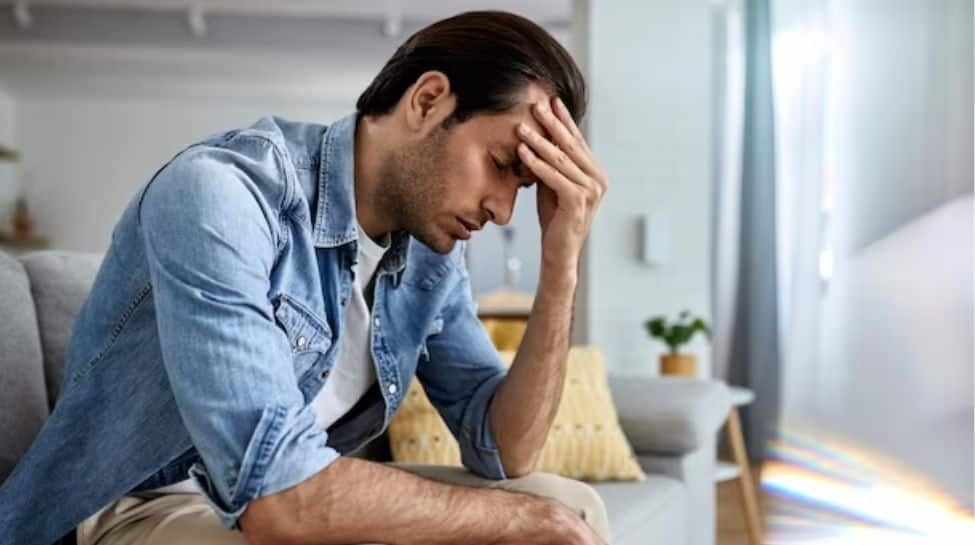[ad_1]
Although men do not go through menopause, they go through similar problems due to the sudden drop in testosterone. Andropause, or simply male menopause, is the name used to describe it. As men age, they go through several changes, including loss of muscle mass and graying of hair. A prominent change observed in men is a decrease in their testosterone levels.
“The topic is rarely investigated because there’s not a lot of research on it, hormone withdrawal isn’t as bad as it is in women, and you don’t die from gonadal hormone depletion. When men experience it, it is usually due to a combination of factors such as work stress, marital stress, lifestyle stress and lifestyle choices, in addition to hormonal imbalance,” says Dr. Shobha Gupta, Medical Director and IVF Specialist at Mother’s Lap IVF Centers in New Delhi and Vrindavan.
What exactly is andropause?
Male menopause refers to a decrease in testosterone levels in men. Dr. Shobha Gupta explains, “The male hormone testosterone naturally declines with age, however, diabetes can also cause this decline in production. The continued decline in testosterone levels is called age-related low testosterone or late-onset hypogonadism. This is more progressive than the early onset of menopause in women. Menopause, which is marked by the end of ovulation and a decrease in hormone production.”
What are some signs and symptoms?
Some of the symptoms that can follow from this decline are fatigue, low libido and trouble focusing. Apart from this, the following indications and symptoms are also present.
Decreased mental clarity (poor attention, bad mood).
Strength and power loss.
Losing muscle, gaining fat and gaining weight.
Depressed mood or lack of fire and energy. annoyance
Muscle aches and pains (feeling stiff).
Sweat or hot flushes
Hands and feet become cold
itching
Sexual dysfunction
decrease in height
Why does andropause occur?
Testosterone regulates several important functions in men. For example, it regulates libido, muscle mass and sperm production. Testosterone is essential for both bone health and blood production. It is produced in the adrenal glands and testicles. As men age, their ability to produce sperm and their testosterone levels decline. This leads to a condition called andropause.
When does a man go through andropause?
Andropause can start around age 40, but it can happen sooner and last up to age 70. “The andropause debate has gained more momentum recently, although not all doctors and psychologists agree that men experience menopause because not all men experience it. , and who don’t usually talk about it. “They do the same way women express their feelings,” said Dr. Shobha Gupta.
Diagnosis and therapy
In the absence of the symptoms mentioned above, your doctor may order a blood test to measure your testosterone levels. If they are low, hormone replacement therapy (HRT) may be recommended. You can get guidance on making lifestyle changes, such as increasing your physical activity and eating a better diet.
Dr. Shobha Gupta suggests some simple tips to make Andropause easier on your body and mind:
Eat healthy food: A diet that is balanced in terms of amounts of fruits, vegetables, meat, fish and dairy foods.
Perform routine and routine health checks: Exercise regularly, focusing on muscular, flexibility and aerobic activity. Get frequent health screenings, especially for prostate, testicular and cardiovascular cancers.
hormones: As you grow older, check your hormone levels. Several significant hormones in a man’s body usually begin to decline between the ages of 40 and 55.
To reduce stress: Talking about your difficulties with your partner, friends and family can help you relax and reduce tension.
intimacy: When you go through male menopause, you will see sex as an element of a meaningful relationship that includes sharing, intimacy, friendship and adequate sleep.
Men’s experience of menopause varies greatly depending on their personality. Unlike female menopause, more research is needed to fully understand andropause, or male menopause, and to determine what can be done to support men throughout this period of their lives.
[ad_2]

